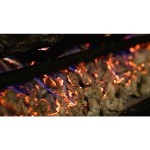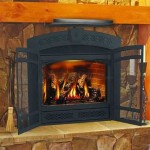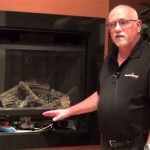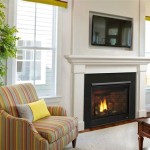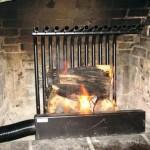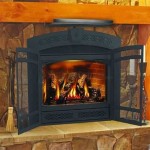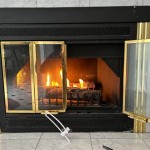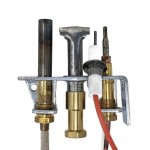How Efficient Are Electric Fireplace Heaters?
Electric fireplace heaters have become increasingly popular as supplemental heating sources and aesthetic additions to homes. Their appeal stems from their ease of installation, relatively low cost, and realistic flame effects. However, understanding their energy efficiency is crucial for consumers seeking cost-effective heating solutions. This article explores the efficiency characteristics of electric fireplace heaters, examining the factors that influence their performance and comparing them to other heating options.
The efficiency of a heating appliance is typically measured by its ability to convert electrical energy into usable heat. In this context, electric fireplace heaters are characterized by a nearly 100% efficiency rate at the point of use. This means that almost all the electricity consumed by the heater is transformed into heat. While this seems highly efficient, it’s important to consider the overall energy chain, from electricity generation to final heat output.
The perception of efficiency can be influenced by the specific type of heating element used in the electric fireplace. The two primary types are radiant heaters and fan-forced heaters. Radiant heaters emit infrared radiation to directly warm objects and people in their path, while fan-forced heaters use a fan to circulate heated air throughout the room. The choice between these types can affect the perceived comfort level and the speed at which a room warms up, but the overall energy consumption generally remains similar.
Understanding Energy Conversion and Cost
Although electric fireplace heaters boast near 100% efficiency at the appliance level, the source of electricity itself needs consideration. Power plants, which generate electricity, often operate with lower efficiencies due to energy losses during combustion, transmission, and distribution. Depending on the fuel source (coal, natural gas, nuclear, or renewable energy), the overall efficiency of delivering electricity to a home can vary significantly. Homes powered by renewable energy sources, like solar or wind, will have a lower overall environmental impact, despite the electric fireplace heater's energy usage.
The cost of operating an electric fireplace heater depends on the local electricity rates and the heater's wattage. A typical electric fireplace heater might consume 1500 watts (1.5 kilowatts) on its highest setting. At a rate of $0.20 per kilowatt-hour (kWh), running the heater for one hour would cost approximately $0.30. It’s important to note that many electric fireplace heaters have adjustable heat settings, which can reduce energy consumption when maximum heat output is not required. Features such as thermostats and timers can also help to optimize energy usage by maintaining a desired temperature and preventing the heater from running unnecessarily.
Comparing the cost of electric fireplace heaters to other heating methods requires considering various factors. Natural gas furnaces, for instance, usually have efficiency ratings between 80% and 95%. However, the cost of natural gas per unit of heat (BTU) often tends to be lower than the cost of electricity, making natural gas a more cost-effective whole-house heating solution in many regions. Heat pumps offer another alternative and are generally more energy-efficient than electric resistance heating, as they transfer heat rather than generating it directly. The overall cost-effectiveness of each method depends on regional energy prices, insulation levels, and individual heating needs.
The Role of Zone Heating
One of the key advantages of electric fireplace heaters lies in their ability to provide zone heating. Zone heating involves heating only the occupied areas of a home, rather than the entire house. This localized approach can significantly reduce energy consumption, especially in larger homes or during periods when only certain rooms are in use. By supplementing the primary heating system with an electric fireplace heater, homeowners can reduce the strain on their central heating system and potentially lower their overall energy bills.
The effectiveness of zone heating depends on several factors, including the size of the heated area, the insulation levels, and the desired temperature. In a well-insulated room, an electric fireplace heater can maintain a comfortable temperature with minimal energy consumption. However, in poorly insulated areas, heat loss can increase significantly, diminishing the benefits of zone heating. Proper insulation is critical for maximizing energy efficiency, regardless of the heating method used.
In addition to zone heating, electric fireplace heaters offer aesthetic appeal and convenience. The realistic flame effects create a cozy atmosphere, while the portability and ease of installation make them ideal for apartments, condos, and other spaces where traditional fireplaces are not feasible. The combination of supplemental heat and visual ambiance contributes to the overall appeal of electric fireplace heaters.
Features Affecting Efficiency and Usage
Modern electric fireplace heaters often come equipped with various features designed to enhance energy efficiency and user convenience. These features include adjustable thermostats, timers, and remote controls. Adjustable thermostats allow users to maintain a consistent temperature, preventing the heater from overheating the room. Timers enable users to program the heater to turn on and off at specific times, further reducing energy consumption.
Remote controls provide added convenience, allowing users to adjust the heat settings and flame effects from a distance. Some advanced models even incorporate smart home integration, enabling control via smartphone apps or voice commands. These smart features offer greater control over energy usage and allow for personalized heating schedules.
The maintenance requirements for electric fireplace heaters are generally minimal. Regular cleaning of the air intake vents can help to maintain optimal airflow and prevent overheating. Replacing the bulbs that generate the flame effects may be necessary periodically, but this is a relatively simple and inexpensive task. Overall, electric fireplace heaters are designed for ease of use and require little ongoing maintenance.
In summary, electric fireplace heaters offer near 100% efficiency at the point of use, but their overall cost-effectiveness depends on factors such as electricity rates, insulation levels, and heating needs. They are particularly well-suited for zone heating and can be a convenient and aesthetically pleasing supplemental heating option. Features like adjustable thermostats, timers, and remote controls can further enhance their energy efficiency and user experience.

Are Electric Fireplaces Energy Efficient Direct Learning Center

Are Electric Fireplaces Energy Efficient We Love Fire

Electric Fireplace Heater Are They Effective Types And Specs

Are Electric Fireplaces Energy Efficient We Love Fire

Mythbusters Electric Fires Dimplex

Electric Fireplace Faq Sylvane

Eco Friendly Hearth Embrace Efficiency With Electric Fireplace Arttoreal

Space Heater Energy Efficient Indoor Electric Fireplace With Realistic Flame Effec
The 6 Best Electric Fireplace Heaters Of 2024

Costway 18 Electric Fireplace Insert 5100 Btu Freestanding Heater With Remote Control Com

